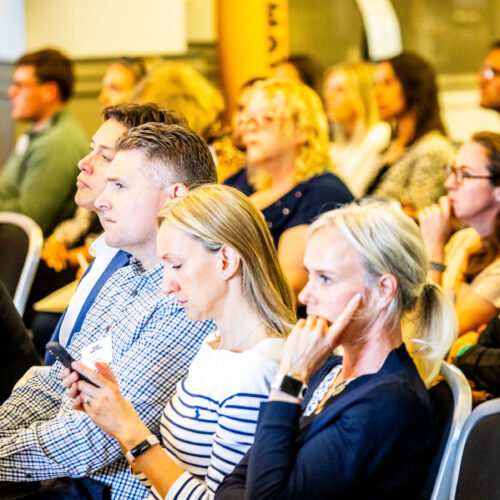According to the United Nations, a large percentage of fisheries are overfished. In many parts of the world there simply are not enough fish to catch and make a profit.
72% of the world is ocean and one-in-three of the fish on your plate are considered to be fished unsustainably.
Given that there are billions of people who depend on fishing, either as food or a source of income, something has to change. Both for the industry and for the wider health of our oceans.
It is not known how long we can go on fishing the way we are globally, but there is general consensus that it is not too late to turn things around.
The idea of sustainable fishing is nothing new. But the question is, which methods used by the fishing industry are actually sustainable?
And how realistic is it to think we will get a vast global industry to adopt them?
In this episode of the Food Matters Live podcast, we look what the impact would be if we carried on as we are, on fish stocks, local economies and on food security.
And we ask: If we have known about the problems caused by overfishing for so many years, why have we not seen meaningful change so far?
Listen to the full episode to find out what the most damaging fishing methods are, how destructive fishing is defined, and the important role diversification could play in helping fish stocks to recover.
Dr Antonia Leroy, Head of Ocean Policy, WWF
Dr Antonia Leroy, Head of Ocean Policy at WWF European Policy Office, leads the implementation of WWF’s objectives to secure healthy ocean ecosystems and sustainable fisheries at EU level. She is an expert on ocean governance and has worked for many years on in IUU fishing issues, including those related to geopolitical instability and security.
WWF is a member of several advisory councils concerning EU policy preparation, including the Market Advisory Council (MAC) and the Long distance Advisory Council (LDAC). The mission of the WWF European Policy Office is to ensure that policies are adopted and implemented for the sustainable management and use of our seas, and to secure the protection of marine wildlife and habitats for the benefit of people and nature.
Sophie Benbow, Head of Marine, Fauna and Flora International
As Head of Marine, Sophie leads Fauna and Flora International’s marine programme, supporting implementation of its marine portfolio globally. She supports knowledge exchange and communication between FFI’s marine projects and promotes external collaboration.
She has worked for FFI for over seven years supporting marine project delivery and development across Asia, Africa and Eurasia, and previously led coral reef research and sustainable fisheries management focussed in Madagascar.







